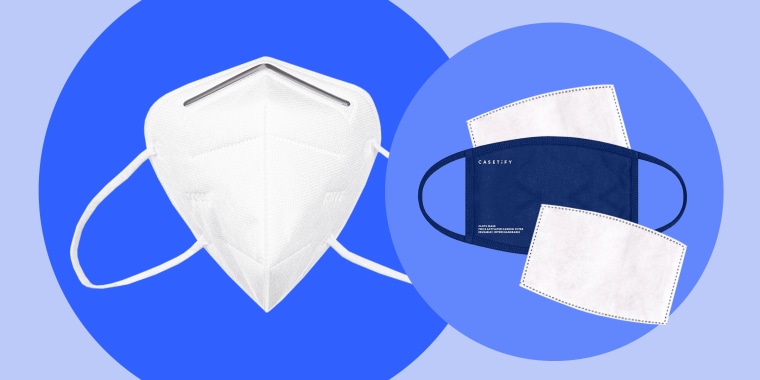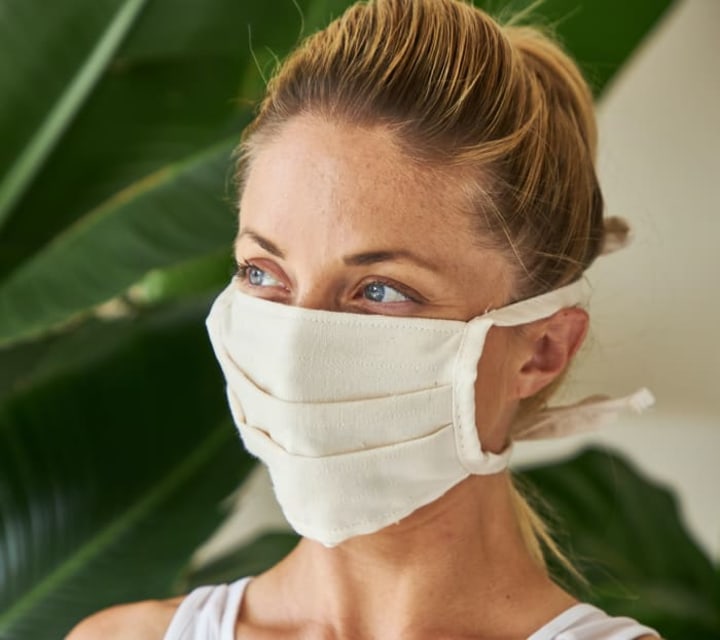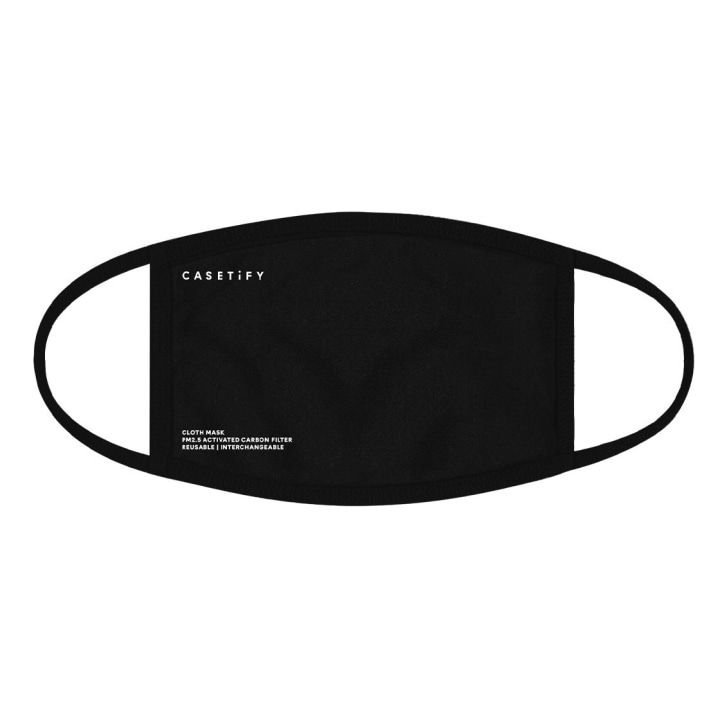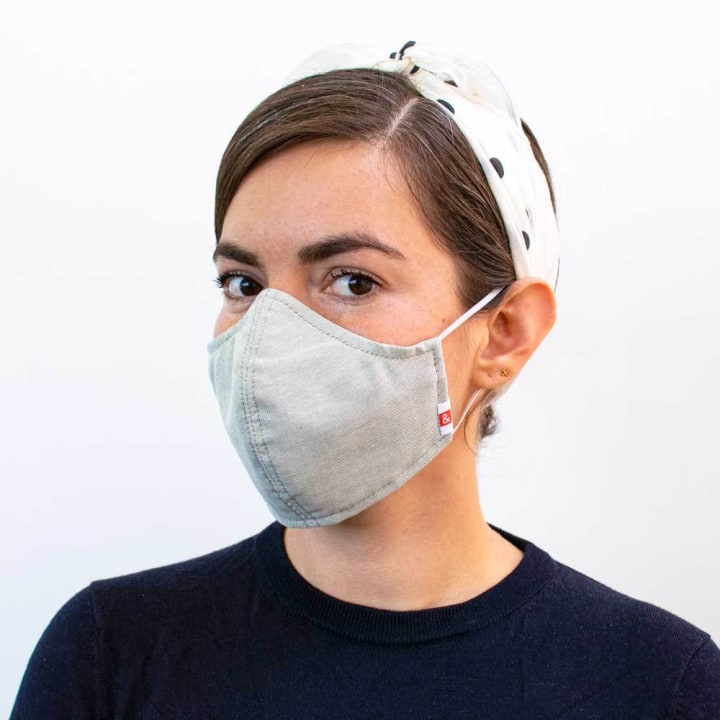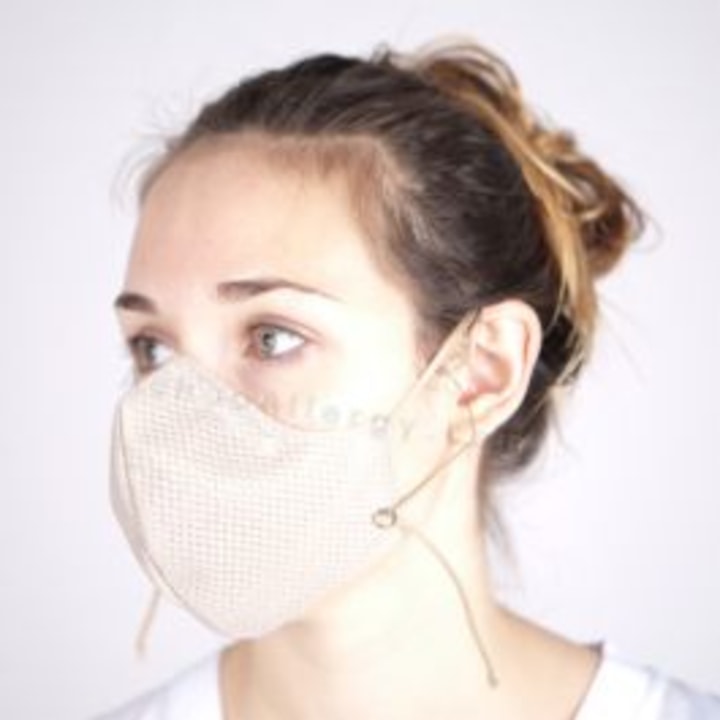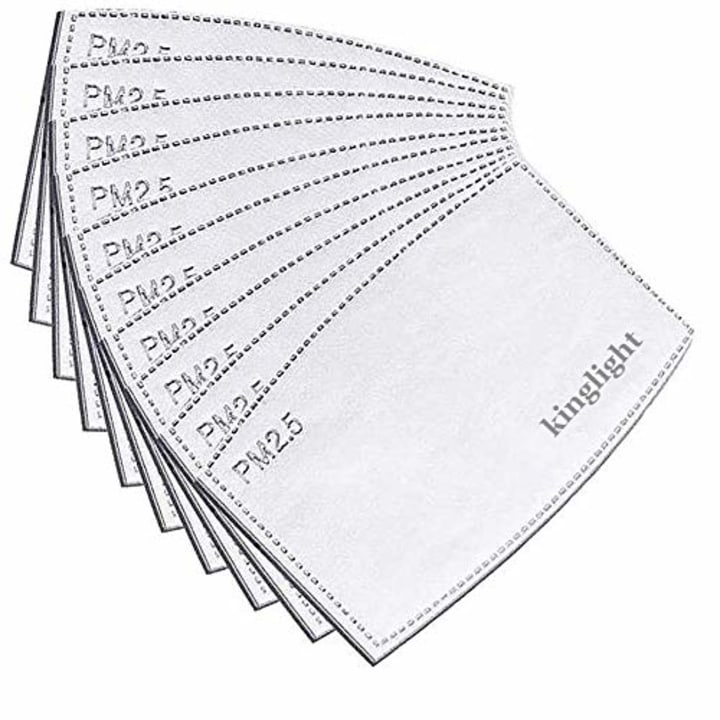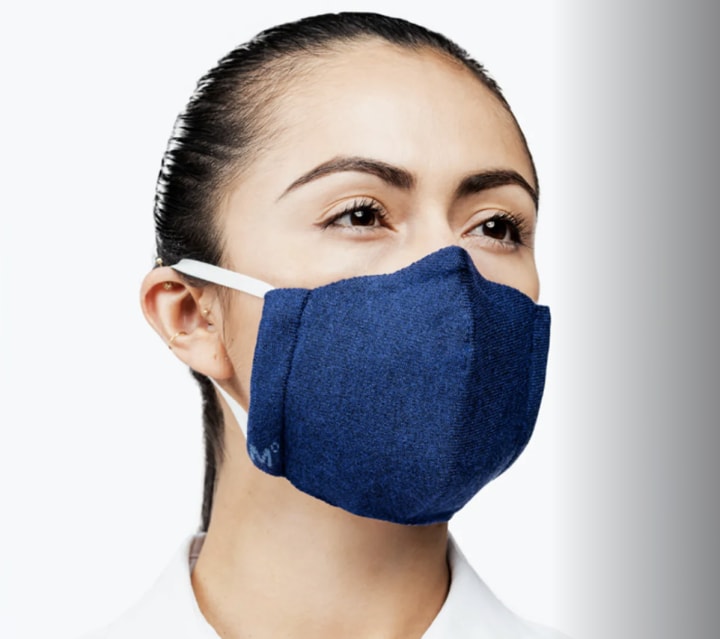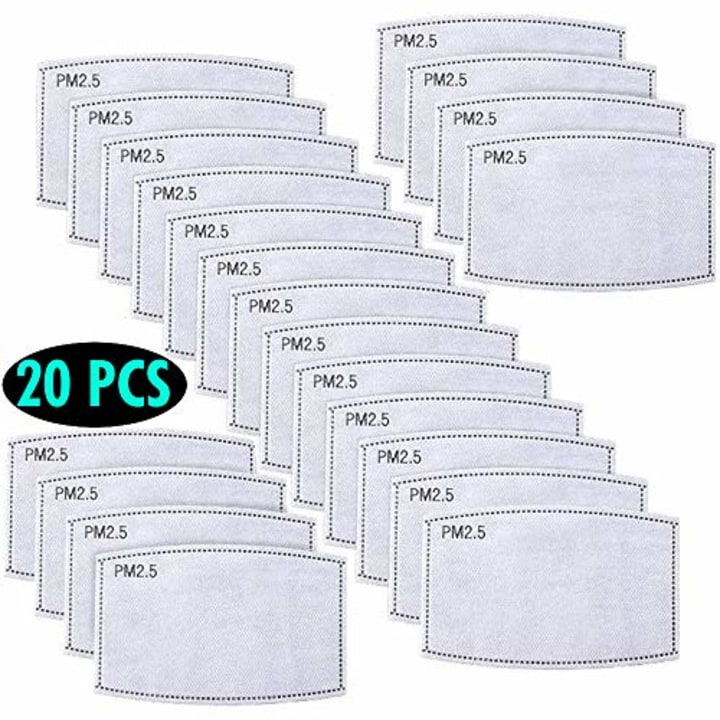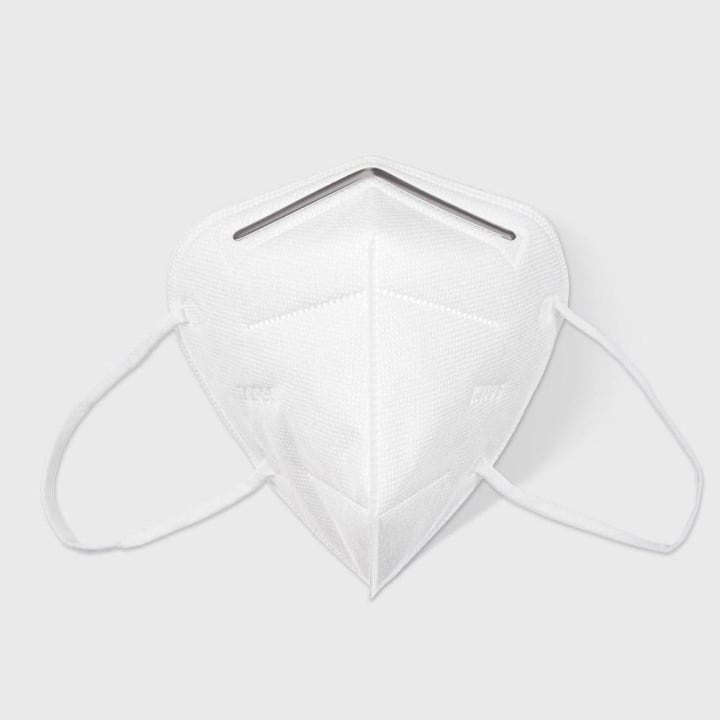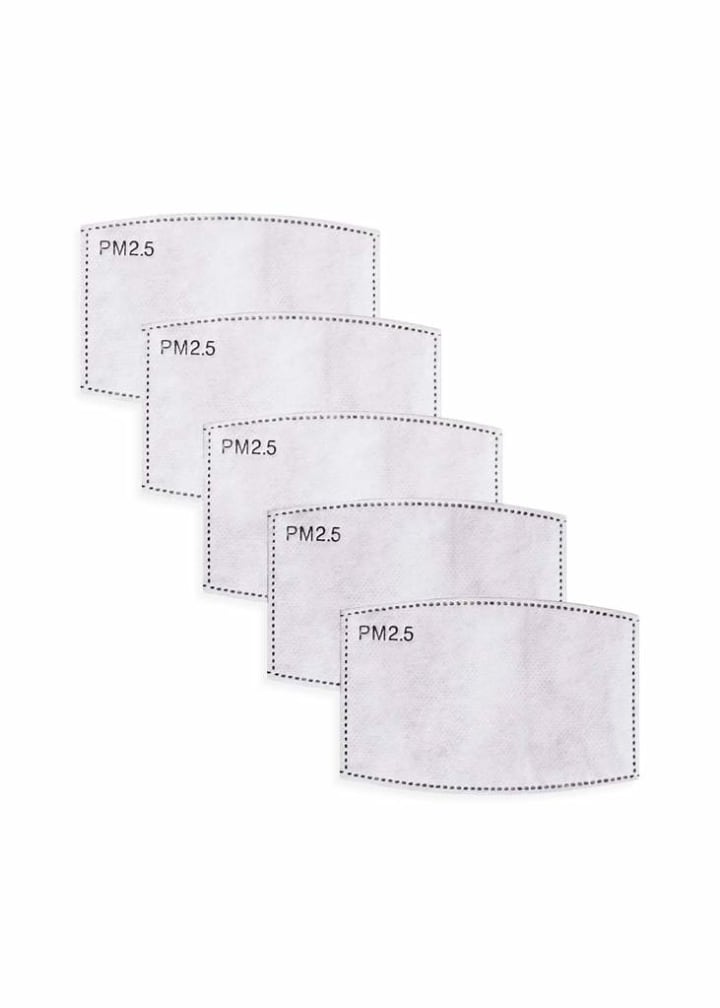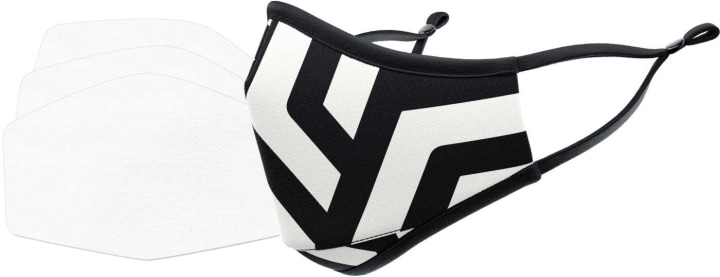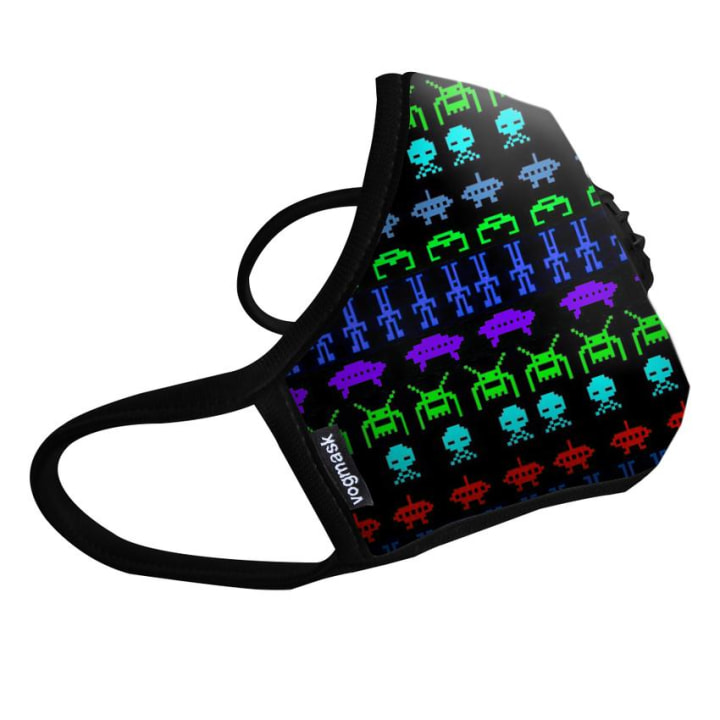Editor’s note: As we will report below, experts agree that face masks with filters — and without — do not replace or relieve the need to wash your hands and practice safe social distancing, and they absolutely do not alone prevent the spread of COVID-19.
In this article: What are face mask filters? | Do they prevent coronavirus? | How to find the right face mask filter | Where to buy face masks with filters
Face masks have become the norm after the Centers for Disease Control and Prevention recommended Americans wear masks in public to reduce the spread of COVID-19. In response, many companies have pivoted to making face masks — and face masks for kids. Consumers can now find masks in almost any style and material, including cotton, polyester and nylon. Many masks come with a filter built-in or as a replaceable feature. You can also buy filters separately and insert them into face masks that allow for it. Equipping a face mask with a filter should increase its effectiveness in filtering out particulate, explains Nidhy Varghese, MD, a pediatric pulmonologist in Texas. “Having a cloth mask and inserting another fabric or material for additional filtration and protection may improve the protection offered by a home mask,” she said. “This may be particularly helpful for masks made from loose fiber weaves, which offer little resistance to air flow.”
Full coverage of the coronavirus outbreak
But not all face masks come with filters. So how do you choose the right face mask with a filter, and how should you shop for third party filters? To figure that out, we consulted medical experts on how to shop for filters for your face masks and compiled some of the best filters out there.
What are face mask filters?
There are different types of face mask filters, ranging from basic pieces of cloth to carbon filters and HEPA filters. Face mask filters will typically sit in between the two outer layers of the mask, and are used to further filter out particulate in the air.
Full coverage of George Floyd’s death and protests around the country
Homemade filters
You don’t necessarily need to buy a specialized filter to get effective mask filtration. A piece of high-thread count fabric may work just as well, said Josh Davidson, MD, an allergy and immunology specialist in California.
A recent peer-reviewed study found the most efficient masks were constructed of two layers of heavyweight "quilters cotton" with a thread count of at least 180, and a thicker and tighter weave. It’s equally important the mask (and filter) fits snugly against your face, and that there are no gaps around the outside of the mask. While you can easily cut fabric to make a homemade filter, it’s often easier (and more effective) to purchase a filter specifically designed to be inserted into a mask, said Varghese.
Carbon filters
Carbon filters are used in air purifiers to absorb, remove and capture particulate in the air, Davidson said. Airborne particulates react chemically with the carbon in the filter, causing it to stick to the filter. Carbon filters are used to trap allergens like dust, mold, smoke and chemicals in the air.
Face masks sporting carbon filters typically come with a replaceable filter that helps remove bacteria from the air and, additionally, helps absorb particulate on the surface of the mask. While they may help purify the air around you, they likely won’t increase the efficiency of filtering out viruses, said Davidson.
HEPA filters
Additionally, retailers like Amazon are selling insertable HEPA filters: high efficiency particulate air filters. HEPA filters are typically found in air purifiers or central air systems and are used to clean the surrounding air of particulates. While there are benefits to using a HEPA air purifier in the home — especially as most of us spend more time indoors — the effectiveness of an individual filter inserted into a face mask is unclear as of now.
“A standalone HEPA filter remains ideal, particularly in a bedroom environment, a workplace, wherever a person spends most of their indoor time,” said Davidson. “When outdoors, inserting one of these filter cartridges cannot worsen the efficacy of the mask itself. However, it likely won't approach 99.97% filtration. The verdict: these can help. However, they're not absolute protection.”
If you’re shopping for HEPA filters — for either your face mask or any other filtering device — keep an eye out for specific labeling. Any air cleaner that has a real HEPA filter has been tested and approved by nonprofit Institute of Environmental Sciences and Technology. This means they are true HEPA filters. Some filters might label themselves as “HEPA-type” or “HEPA-like” — these filters are not verified, so they may not be as effective, explained Verghese.
Do face mask filters prevent coronavirus?
No. The CDC reports that COVID-19 is primarily spread through person-to-person contact or contact with contaminated surfaces. While recent studies aim to determine the effectiveness of certain fabrics in filtering out particulates, there’s limited information about the effectiveness of inserting a HEPA filter into a manufactured or DIY face mask, said Kenneth Mendez, CEO of the Asthma and Allergy Foundation of America. Consumers should be wary about filters or face masks that claim to filter out the virus completely. “While a face covering will not give you total protection from catching COVID-19, it will help you and others reduce the chance of spreading it, especially if you aren’t aware that you are infected,” he said.
Above all else, Mendez stressed, masks are not a replacement to social distancing or hand-washing.
How to find the right mask filter for you
The two most important considerations when shopping for both masks and individual filters are fit and breathability. An additional layer of filtering in your mask may make it more difficult to breathe through. If a filter is utilized, it should be sandwiched between the outer layers of the cloth masks for an optimal fit, said Mendez. “We recommend manufactured or DIY masks that include multiple, breathable layers, which fully cover your nose and mouth,” he said.
To know if your face mask is effective in filtering out particulate, he recommends shining a light up against the material. If the light shines completely through the mask, consider adding more layers or a different fabric. The mask should block the light almost completely, Mendez said.
There are other important things to keep in mind while shopping for masks, otherwise. We cover those extensively in our guide to buying face masks. Here’s a refresher: The CDC has outlined five criteria to consider when looking for a mask:
- They must fit snugly (but comfortably) against your face
- They must be secured with ties or ear loops
- They must include multiple layers of fabric
- They must allow for breathing without restriction
- They must be washable without damage or shape change
A recent study found the quality of fabric plays a role in how effective a cloth mask is at filtering out particulate. The most effective design, according to the study, was a dual-layer mask which included both a heavyweight cotton layer and a lighter cotton or silk layer.
Where to shop for face masks with filters
If you’re shopping for a filter face mask, we’ve compiled face masks that either come with a carbon filter or option to insert a disposable filter, like a HEPA filter. Below, we’ve included only those masks whose listed features adhere to the CDC’s recommended criteria and the expert guidance we share above.
1. Avocado Green Mattress Organic Cotton Face Mask
The maker of eco-friendly mattresses is making 100-percent organic cotton fabric face masks available in packs of four. They can allow for a separate filter to be inserted. The brand has so far made more than 130,000 non-medical grade masks, and will be donating on percent of sales to the EcoHealth Alliance.
2. Casetify Reusable Cloth Mask
The technology brand is pivoting to making reusable masks. The masks come in five different colors and are made of cotton material — plus, they come already fitted with a filter, plus two additional ones. For every mask sold, Casetify will donate a surgical mask to a medical worker in need via Direct Relief. The company is also selling packs of 10 interchangeable carbon filters.
3. Hedley & Bennett The Wake Up & Fight Mask
These reusable masks come in plenty of different styles and are designed to be used with a filter, such as a HEPA filter, inserted within the fabric. The masks were developed with a pediatric orthopedic surgeon and are one-size-fits-most. Each purchase provides a mask for you and a donation of one for a frontline worker.
4. Honeycomb Carbon Filter Masks (Out of Stock)
This mask comes with a disposable carbon filter inside layers of cotton and polyester. The outer layer is mesh and comes in five different colors. These masks are both washable and reusable.
5. Kinglight
These activated carbon filters come in packs of 10, and are made of non-woven fabric and cotton. The filter’s five layers effectively filter out emissions, exhaust and other particulates.
6. Ministry of Supply Mask Kit (Pre-Order)
Each mask, made of washable fabric, comes with 10 disposable filters. The masks are made out of 3D Print-Knit technology, a knit that’s 3D printed. For each mask sold, the company is donating a mask to frontline healthcare workers at Boston Medical Center.
7. OUBA Face Mask Filters
These individual filters are made with activated charcoal and five layers of cotton. These filters help filter out particulates like pollen, exhaust and allergens. Filters come in packs of 20 disposable filters and can easily be inserted to any mask with a pocket.
8. Public Goods K95 Face Masks (Out of Stock)
These non-medical masks are KN95-certified, meaning they adhere to the Chinese standards for respirator masks, according to the CDC. These masks include five layers of polypropylene and cotton filters and have a nose clip to fit the mask more tightly to your face.
9. Vida Mask Filter Replacements
The retailer is selling non-medical face masks, in addition to packs of five insertable filters designed to block airborne contaminants. VIDA recommends users change out the filter every seven days.
10. Vistaprint Face Masks
The printing company has created their own reusable masks that allow for a filter to be inserted. The masks come in three colorful designs and have four filtration layers: a textile exterior, replaceable fiber filter, a cloth layer and a 100-percent cotton inner layer. The company is also selling packs of 10 disposable filters, that can be used for up to 12 hours.
11. Vogmask
These filter masks claim to filter out airborne particulate .3 microns or larger, and additionally come with an exhalation valve and noseband for a tighter fit. The mask is made out of cotton and spandex, and comes in five sizes — and plenty of colorful designs. Most masks are currently sold out, but expected to be restocked soon.
Catch up on Select's in-depth coverage of personal finance, tech and tools, wellness and more, and follow us on Facebook, Instagram and Twitter to stay up to date.
